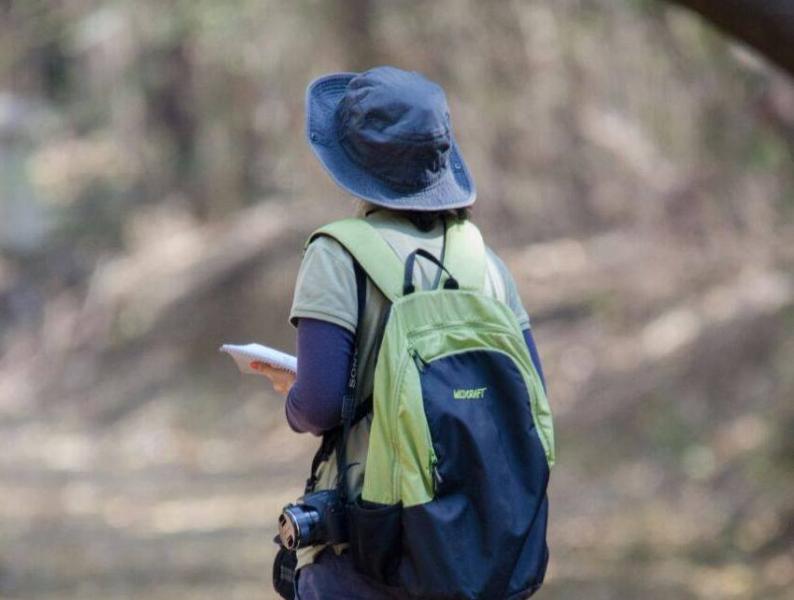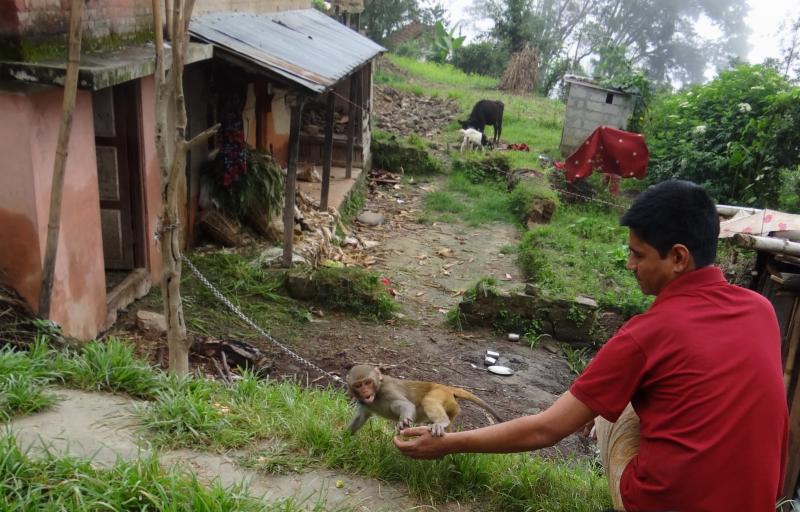The rise of Covid-19 as a full-blown wordly pandemic has opened our eyes to a few things. One of them being the need to be considerate to the Earth we occupy. Travellers are realizing, all around the world, the need to be cosncious, responsible and sustainable travellers. EcoTourism, a small branch of tourism, must pave the way ahead so we are gentler to our surrounding as we continue to be globetrotters. Today marks the World Environment Day, hosted since 5th June, 1974. The theme for 2020 is "Celeberate Biodiversity." One of the first steps in being able to celeberate biodiversity is to learn how to be ecotourists.
What is Ecotourism?
Simply put, it is tourism with an ecological conscience. It involves visiting fragile, pristine, and relatively untouched natural areas, with the intention to support conservation efforts. One observes the flora and fauna in their natural environment and cause as little impact as possible. It is often done on a small scale and is a great alternative to the mainstream commercial tourism.
Ecotourism is critical. We have far left behind the years when this was simply ‘important’- today it is critical. Today each one of us must contribute towards nature. Nature has all the resources to satisfy man’s need. Although humans have become increasingly greedy (our ‘needs’ remain the same, our ‘wants’ spiral out of control), we need, we want but no one gives back. No one replenishes what they take.
Steps to Become an Ecotourist
So if you are planning on promoting Ecotourism in India and also becoming an ecotourist, here are a few points to remember:
1. Read and collect Info: Read as much as you can about the place you’re travelling to- before you go there. Read about all the wildlife found in that ecosystem, distance to maintain from these animals and activities to do without causing disturbances to that habitat.

Preparation is key!
2. Don’t encourage ill practices: Clicking pictures with wild animals or throwing stones to see them react, unruly behavior with local communities, feeding animals, off-roading on open spaces and grasslands

I came across this Rhesus Macaque baby near the Shivapuri National Park in Nepal. I am totally against petting wild animals. Most of these locals end up earning money when people pose with their pets. Encouraging these poor villagers for petting wild animals is a very common mistake done by most travellers who are not yet eco-travellers!
3. Avoid plastic: Avoiding plastic as much as you can is a good practice in day to day life and also a way of promoting ecotourism in India. According to a recent study, 5 trillion pieces of plastic are floating on the world’s ocean weighing about 269,000 tonnes. India ranks 12th on the list of twenty worst marine polluter countries. While on your eco-tour try to reuse your plastic bottle or replace them by steel bottles. Plastic is one the biggest pollution problems in natural spaces and cities.

Plastic ruins the entire ecosystem!
4. Follow the “Leave Only Footprints Approach”: While you explore jungles try and bring back the smallest of your waste. Dispose wherever it is possible to reuse/recycle or is the most appropriate place.

Leave Only Footprints
5. Stay on the trail when you go on treks within the wild: This is beneficial for both you and the wild animals. You can easily find your way back without disturbing the animals or invading in their personal space.

Follow the trail- always!
6. Avoid smoking: This is good for your lungs and the earth’s lungs- the forests. Umpteen times cigarettes thrown in dry deciduous forests have triggered uncontrollable forest fires. Forest fires are the single most important cause of destruction of many species at once. It is imperative that we take all necessary precautions to prevent such avoidable disasters, which are against the very essence of ecotourism in India and all over the world. Also cigarette butts take about two to twenty-five years to biodegrade, if ingested by wildlife animals or marine life it’s often fatal for them.

Cigarette butts are not only notoriously non-biodegradable but also a forest fire hazard!
7. Learn to be ethical in the forests: Photographs are one of the essentials in a traveller’s diary. Learn photography ethics or simply talk to the experts to get an idea of how to click wildlife without disturbing them. This is an important factorwhen it comes to ecotourism in Inda.
Here are a few links to help you:
http://www.digicamhelp.com/how-to/nature/wildlife-photography-ethics/
http://focusingonwildlife.com/news/nature-photography-ethics-and-conservation-issues/

I personally like distant photography. This photograph speaks so much about the animal’s habitat. Isn’t it better to capture and witness a Wild Elephant family enjoying at their home. Clicked at Anamalai Tiger reserve in Tamil Nadu
8. Get involved with organisations who promote ecotourism in India: You can choose to work and be an active part of these organisations. I would like to list a few names here- bigger organisations like WWF-India and BNHS run tours and events. Also other private and self funded organisations, one of them being Flock Together- conduct weekend eco-tours based out of Bangalore and Mumbai, learn and have fun.

Organizations which promote ecotourism
9. Make Donations: Everyone must make it a point to donate to conservation efforts! If you do not like ecotourism and wish to travel with all your luxuries and disturb nature- then it’s even more imperative to donate to causes that support conservation. Everyone needs to support the cause 
Here are a few links to help you:
Snowleopard
WWF India

Donate for a greener tomorrow!









